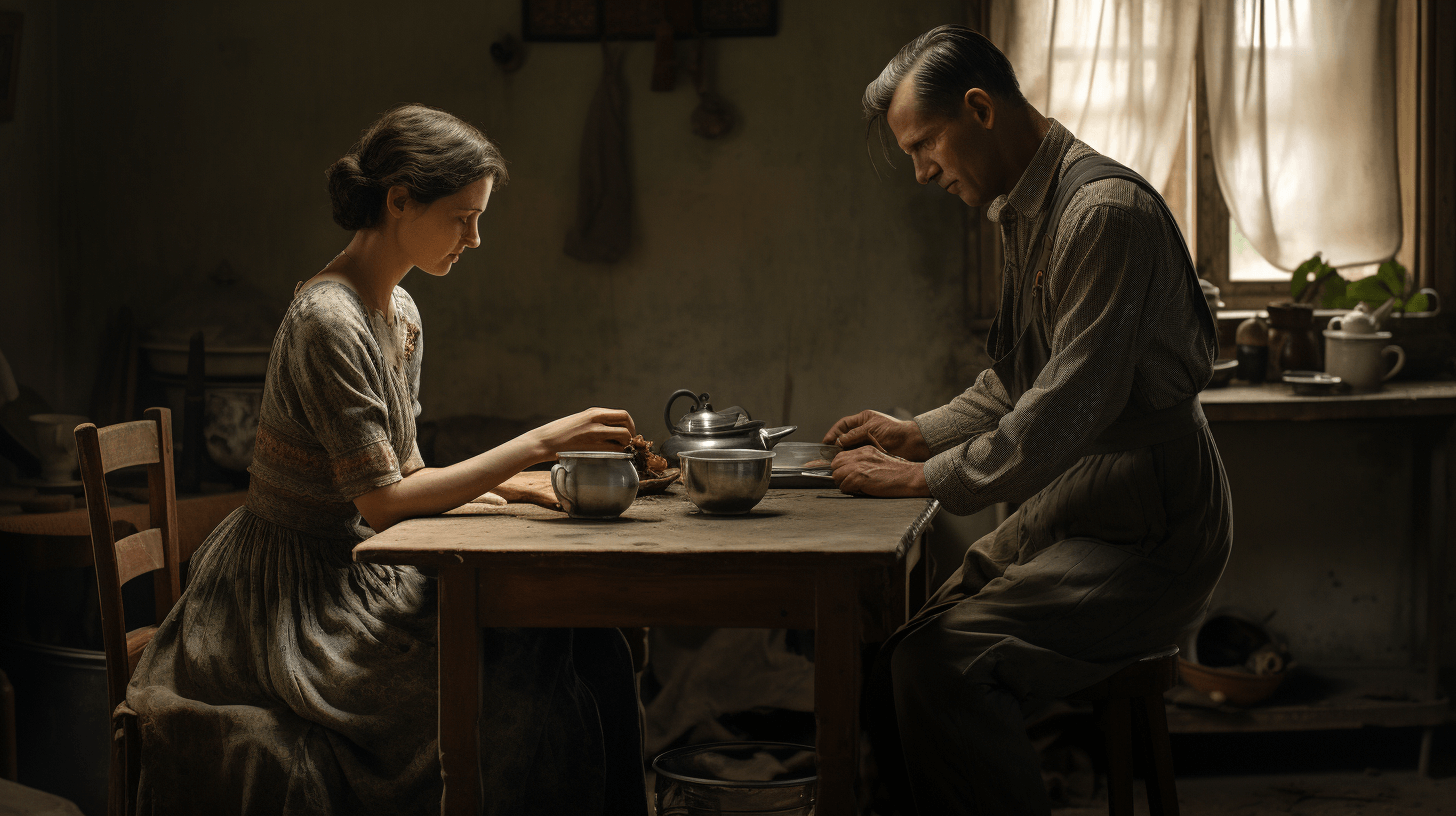Science
The Monk Who Saw the Future: Did an 11th-Century Benedictine Beat Astronomers?
17 February 2026

Wojciech Czuchnowski is the author of Dzbanek rozbity. Sceny z życia, choroby, śmierci i żałoby - a book about the disease and death of his beloved wife, Agnieszka. “We needn’t fear tending our dearest ones. Even the best hospice cannot compare” he says in a moving interview hosted by Waldemar Kumór.
Why did you write a book about death?
Actually, I wanted to write a book about my wife Agnieszka so that her death would leave behind more than just our family memories. It’s also a form of my refusal to accept that she’s gone. Finally, I must admit I’ve recently had a recurring feeling of doubt about life after death, so I’ve made sure Agnieszka will live on—in the book.
In the consolation book?
I’ve been touched by opinions that it’s an important book. Readers certainly appreciate the message that we needn’t fear tending to a beloved person in a serious condition. On the contrary, we should do everything in our power to be with them—provided that we have the necessary time, money, mental capacity, and yes, physical strength. Terminally ill people shouldn’t suffer and die in hospitals or hospices. Even the best hospice cannot compare to the company and attention of a loving one. This message really helps people. Still, let me reiterate that I first and foremost wanted to preserve the memory of Agnieszka.
You’ve impressed me with how you took care of your ailing wife.
If you love someone, your view is different. Plus don’t get me wrong, but it wasn’t that hard: Agnieszka was a very good, grateful, and aware patient. Her disease lasted for four years, with a three-year break until the cancer recurred.
An “aware patient”? What does this mean?
Aware of her disease. She perfectly knew what she required, when she needed help, what she had to endure, or what I had to do.
A few ordinary things also made it all easier. For example, Agnieszka had always been rather slim, and her weight dropped further to just over 40 kilograms in the final phase of the disease. I had no problem lifting her or putting her into the bathtub. Sadly, life usually has women tending their ill husbands who weigh more than themselves.
All in all, fate didn’t treat us that badly, so we coped with the situation as best we could and remained very close. I was spared the pain of the people forced to watch their dearest ones suffer for many years. When that’s the case, carers often feel they cannot stand the other person’s torment any more or bear the feeling that they will fail in their duty. I didn’t even reach the brink of such a state myself.
We recommend:
You’ve said fate didn’t treat you that badly, but you still had suicidal thoughts and plans.
True, but they weren’t really caused by despair. I am of an opinion that everyone can take one’s own life—even though Christian culture combats this viewpoint. Self-inflicted death is actually the only thing people can control: we don’t govern our own birth, but we’re able to decide when and how we pass away.
Our relationship lasted 34 years, but I wasn’t a good husband all the time. On the contrary, I often hurt Agnieszka and gave her much worry. Certainly, I felt remorse afterwards, and maybe that was why I wanted to die with her.
Over the last 20 years of my life, I worked four days per week in Warsaw and three in Kraków, at home. We spent every bit of free time together and I wasn’t able to imagine my life without her.
Agnieszka saved me many times when I was about to fall and helped me whenever I did fall anyway. She kept me going and was the sense of my life, so I thought that maybe I should pass away together with that sense. The situation also made me think about us committing suicide together when it turned out that she couldn’t be saved.
Therefore, I gathered an appropriate supply of various drugs well in advance. Still, every time I mentioned those ideas to Agnieszka, she reacted very firmly and made me swear I would never do any such thing. In addition to religious arguments (as she was a believer), she insisted that even adult children needed their father, and that was one of the reasons which ultimately convinced me. Besides, I’ve learned that people are sheer cowards in such situations: we simply hold on tight to life.
Her funeral took place a little more than one year ago. Looking back at the care and treatment she received, would you change anything if you had a chance?
It is not my purpose to discourage anyone from medical procedures, but I sometimes think that the last phase of her palliative care was unnecessary. Maybe she wouldn’t have been so exhausted in her last months?

At the same time you incessantly praise the doctors and their commitment to your wife.
I have no reservations about the doctors! We have actually become friends with Agnieszka’s treating physician, who was deeply affected by her death and perceived it as a personal failure. He attended her funeral and then the Mass celebrated on the first anniversary of her death. The case of her disease became strongly embedded in his memory because he had expected success, believing that there was still hope for Agnieszka and that she would overcome her truly serious condition. Moreover, the treatment was consulted with two hospitals in France and the USA. In short, my wife and I both felt we were treated specially. I’ve really seen that Polish oncology offers world-class procedures and therapies.
I was moved when I learned that you hadn’t told Agnieszka’s parents anything about her actual condition.
It was Agnieszka’s decision. Her parents are elderly people and have already suffered the death of her mother’s sister, who also died of cancer.
We agreed that such news would utterly devastate them emotionally. Unable to help much anyway due to their old age, they would only worry ceaselessly. Our opinion was actually proved right when I finally told Agnieszka’s mother what was going on: she ended up in hospital the following day.
No wonder that, having predicted such consequences, we wanted to avoid them for as long as possible. We spoke a lot about concealing the truth—because the word ‘lie’ seemed so inadequate. It’s hard to believe, but her parents didn’t notice it for three years that she wore a wig…
You may also like: Hearts Wide Open: Five Types of Love
Is it possible to prepare for the death of a loved one?
I don’t know. I can only talk about my case. At the onset of the disease I was actually certain Agnieszka would recover, and then I still hoped till the very end that we’d make it. Years passed and she seemed to be making progress—until the recurrence. When it happened, I thought we would take up a peaceful life somewhere in Sicily, and we bought a house there. After all, I read about so many people living on with this disease for a dozen months or even years.
Once the cancer recurred, I maximally focused on Agnieszka’s brain surgery. It’s a complicated and serious procedure with a high mortality rate, but she woke up almost immediately afterwards, felt good, and suffered no complications. “That’s it,” I thought.
However, the biopsy of the resected tumor produced a poor prognosis. The doctors suggested palliative care because they believed there was no other way. My reaction was really bad: “How come?! Of course it’s hard, but we’ll win! Her body is emaciated, but she can still make it.” When they replied that it was all they could do, Agnieszka and I refused to give up. We decided to go to Sicily. I hoped she would get well after two or three years, and I desperately clung on to stories of such recovery. For example, my friend’s father lived for two more years after discontinuing his chemotherapy. “All right, then we have two years to go, and we’ll spend them together in Sicily,” I said to myself.
When you tend a patient and perform all those tasks usually done by hospital or hospice nurses, your thinking changes completely. In fact, you have no time to think about what will happen. “It will be fine,” I kept saying. It’s simply easier to perform a sequence of duties day by day, hour by hour. I noted it all down in tables: Agnieszka’s meals, body temperature, pain… Whenever the day ended as planned, we felt successful.
And it all happened during your camper trip from Kraków to Sicily. Was it supposed to be the coping stone of your relationship?
After the surgery Agnieszka said, “You were supposed to take me on a journey, but what now?” So we went. Yes, it was the consolidation and the coping stone because such was her dream at the time: to see “our” beach—her beloved place. To view the sea through the bedroom window.
Did Agnieszka believe she would recover?
I don’t know, we never talked about it. The doctor said that miracles did happen. One thing was certain: she really wanted to visit Sicily, so we got that camper and left. It was an ordinary holiday vehicle, and we filled it with IV drips and other medical devices. Our daughter and I handled them all. We often stopped to make the journey a little less tiring. And we made it.
Why Sicily?
We had been there once. Everyone has their favorite place on earth. Agnieszka had fallen in love with Sicily and that beach, so we went there.
Having reached the destination, we drove straight to “our” beach, even before going to the nearby mountain town. I opened the camper door so that Agnieszka could look at the beach and the sea. We planned to return every two or three days to stroll along, with me beside her wheelchair. But that never happened. She passed away.
How?
Between one spoon of soup and another. I was feeding her.
Wojciech Czuchnowski is a journalist and a feature writer for Gazeta Wyborcza. He has received many journalism awards. His latest book Dzbanek rozbity. Sceny z życia, choroby, śmierci i żałoby (2023) was published by Agora.
We recommend:
Science
17 February 2026



Zmień tryb na ciemny